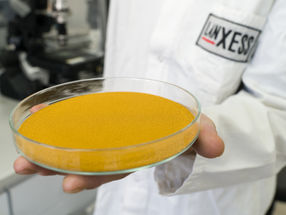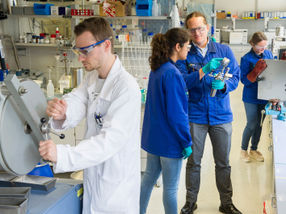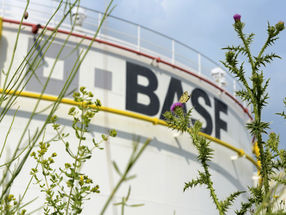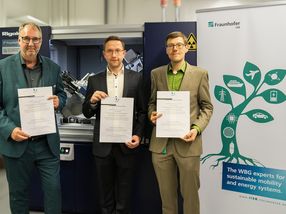Bayer develops stabilizer for biodiesel
Antioxidant for environmentally friendly fuel
Bayer Chemicals, a division of Bayer AG, is now offering an effective antioxidant for biodiesel called Baynox® Biodiesel Stabilizer. The environmentally friendly fuel biodiesel is the methyl ester of unsaturated fatty acids - obtained primarily from rapeseed oil. As far as their chemical properties are concerned, these compounds are known to be very sensitive to Oxidation. Help is at hand from the new stabilizer, which is the result of close cooperation between Bayer's technical, analytical and marketing departments at Bayer.
The enactment of the European standard DIN EN14214 requires biodiesel to be very oxidation-stable at the gas station. The natural stability of biodiesel can be increased in a targeted way using Baynox® Biodiesel Stabilizer. Structurally, the active ingredient of the antioxidant has been modeled on the natural example of alpha tocopherol, and whilst being just as safe and environmentally compatible as the natural substance, it is significantly more effective.
Baynox® Biodiesel Stabilizer is a non-corrosive, non-hazardous substance which is not harmful to health. The active ingredient is highly pure and has been specially distilled so that its combustion occurs without leaving residues. The stabilizer can easily be added to the fuel in a liquid form. It prevents oxidation of fatty acids to corrosive volatile acids and the formation of insoluble polymers in the biodiesel. Otherwise, in the long term, these might cause a blockage of the injection nozzles in motors, for example in motor vehicles and block-type thermal power stations.
For over ten years, biodiesel has been capturing its share of the fuel market. Over 1,600 gas stations in Germany and Austria are already selling biodiesel, and thousands of industrial customers across the whole of Germany are being supplied with it directly. Biodiesel is also being promoted by the EU as an environmentally compatible and cost-effective alternative to conventional mineral fuel. The biofuel only produces as much CO2 as the plant has taken up during its growth. It does not contain sulfur so does not contribute to acid rain and forest dieback, or cause damage to buildings. Biodiesel is quickly biodegraded, thereby reducing the danger to soil and groundwater during transportation, storage and use.
In Germany, bright yellow rape is the most important provider of vegetable oil, which is converted into biodiesel by means of a simple chemical reaction. Approximately 1,500 liters of vegetable oil and at the same time 10.6 million liters of oxygen are produced for every hectare.
Most read news
Other news from the department research and development

Get the chemical industry in your inbox
From now on, don't miss a thing: Our newsletter for the chemical industry, analytics, lab technology and process engineering brings you up to date every Tuesday and Thursday. The latest industry news, product highlights and innovations - compact and easy to understand in your inbox. Researched by us so you don't have to.





























































